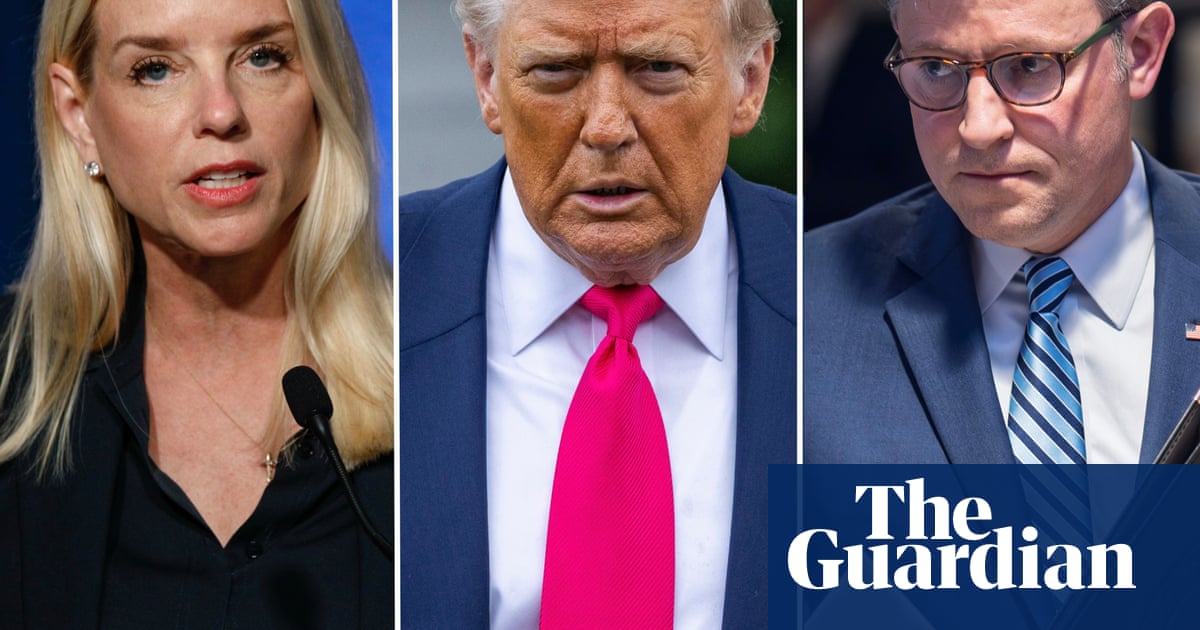Donald Trump’s sweeping tax bill will finance a vast expansion of surveillance along the US-Mexico border, according to a new report.
The One Big Beautiful Bill Act (OBBA) will give the Department of Homeland Security (DHS) – where US immigration agencies are housed – an unprecedented injection of $165bn in additional funding over the next four years. It’s welcome news for the surveillance and defense tech industries that have been racing to cash in on the Trump administration’s immigration crackdown.
Signed into law on the Fourth of July, the OBBA earmarks more than $6bn of that spending for border technology, including surveillance, according to a new report by the immigration legal defense organization Just Futures Law. Among those standing to benefit are private prison corporations the GEO Group and Core Civic as well as surveillance firms such as Palantir and Anduril. US immigration agencies are seeking more funding for biometric data collection, license plate readers and phone hacking, the Just Futures Law report indicates.
“The spending is not about safety, it’s about growing Trump’s power through an agency like DHS,” said Laura Rivera, author of the report and senior staff attorney at Just Futures Law. “I’m questioning why policing at the border should require this level of spending when the Trump administration is saying border crossing is at an all-time low.”
Though many of these firms have already seen an increased investment from the federal government and the expansion of existing contracts since the start of the second Trump term, some executives have been banking on the additional funding swelling the budgets of immigration agencies such as Immigration and Customs Enforcement (Ice). During a recent earnings call, for instance, executives at the Geo Group, which operates detention centers and sells surveillance products, repeatedly assured investors that they expected to see more “momentum” for their businesses in the second half of the year once the Ice budget was finalized.
Here’s what the agencies are asking for, what the OBBA is giving them and who stands to profit the most:
Palantir
The biggest name among the firms that will see a windfall from the big funding boost to the DHS is Palantir. The data management company was previously awarded $30m in a new contract to build a platform called ImmigrationOS that makes deportations more efficient. As part of the contract, Palantir is reportedly enabling the government to bring together sensitive data on all Americans from the Internal Revenue Service, the Social Security Administration and the DHS. It’s an unprecedented centralization of personal information by the federal government that civil liberties experts argue is a violation of privacy.
Biometric systems
The OBBA has allocated $673m to be spent on biometric systems – which collect and identify people based on physical attributes like their face or fingerprints – for ports of entry and exit. In April, for instance, Customs and Border Protection (CBP) put out a request for bids from firms that would help the agency perform real-time facial recognition on people inside vehicles crossing the borders.
CBP previously signed a $16m contract with data broker LexisNexis for various services, including facial recognition. Since the start of 2024, CBP has awarded the little-known facial recognition firm Sentrillion nine contracts totaling $36.7m. According to its website, the company enables CBP officers to use “voice and facial recognition from audio and video surveillance systems, as well as biometric fingerprint readers, to verify the identity of citizens”.
after newsletter promotion
CBP also has contracts with Clearview AI, which has been deployed at the US-Canada border, according to the Just Futures Law report.
Border surveillance towers
The DHS is also planning to ramp up its use of surveillance towers along the border. Supplied by firms like Peter Thiel-backed Anduril and the Israeli defense firm Elbit Systems, these automated surveillance structures are used to record and track who is crossing the border. CBP has asked for $140m for the upcoming fiscal year to construct more than 200 new towers along the border. The agency expects to have more than 900 towers up by September 2026, according to the report.
Ice is looking to ramp up its social media surveillance capabilities with OBBA funding. In a request for information published in June, the agency sought an analytics firm to scour various sources of data including social media, geolocation and license plate reader information, financial information, international travel and crime data. The intention would be for the firm to analyze all of that information together to attempt to predict “potentially criminal and fraudulent behavior before crime and fraud can materialize”, according to the proposal. It’s unclear how much funding is set aside for Ice’s specific program, but the DHS has already implemented expanded screening procedures for visa applicants, including requiring their social media accounts be set to public. CBP has awarded a $1.2m contract for software developed by a company called Fivecast Onyx to scrape and analyze open source data, including social media.

 German (DE)
German (DE)  English (US)
English (US)  Spanish (ES)
Spanish (ES)  French (FR)
French (FR)  Hindi (IN)
Hindi (IN)  Italian (IT)
Italian (IT)  Russian (RU)
Russian (RU)  7 hours ago
7 hours ago
























Comments